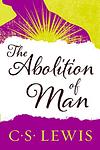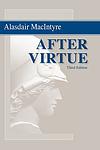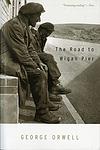The Greatest British "Nonfiction, Ethics" Books of All Time
Click to learn how this list is calculated.
This list represents a comprehensive and trusted collection of the greatest books. Developed through a specialized algorithm, it brings together 305 'best of' book lists to form a definitive guide to the world's most acclaimed books. For those interested in how these books are chosen, additional details can be found on the rankings page.
Genres
The "Ethics" category in books encompasses a broad range of works that delve into the philosophical study of morality, values, and human conduct. It explores the principles that govern individuals' behavior and the moral frameworks that shape societies. Books in this genre often tackle questions of right and wrong, justice and injustice, virtue and vice, as well as the ethical dilemmas that arise in various aspects of life, including business, medicine, technology, and personal relationships. They may present historical perspectives on ethical thought, analyze contemporary moral issues, or offer guidance on leading a moral life. This category includes texts from ancient philosophical treatises to modern-day commentaries, featuring works by ethicists, philosophers, theologians, and other thinkers who seek to understand and influence how we make decisions that impact ourselves, others, and the world around us.
Countries
Date Range
Reading Statistics
Click the button below to see how many of these books you've read!
Download
If you're interested in downloading this list as a CSV file for use in a spreadsheet application, you can easily do so by clicking the button below. Please note that to ensure a manageable file size and faster download, the CSV will include details for only the first 500 books.
Download-
1. The Abolition of Man by C. S. Lewis
This philosophical book explores the concepts of objective value and natural law, arguing that these are essential for moral reasoning. The author criticizes modern education for producing "men without chests," by which he means individuals who deny the importance of moral absolutes. He suggests that this could lead to the "abolition of man" as we traditionally understand him, replacing moral individuals with conditioned responses. The book also discusses the dangers of scientific advancement without moral considerations.
The 1735th Greatest Book of All Time -
2. Principia Ethica by George Edward Moore
"Principia Ethica" is a philosophical work that argues for the objectivity of good, stating that it is a simple, indefinable and non-natural property that cannot be broken down into any other properties or concepts. The author challenges the prevailing ethical theories of his time, such as utilitarianism and hedonism, and introduces the "naturalistic fallacy," the idea that it is incorrect to define "good" in terms of natural properties. This book is known for its rigorous argumentation and its significant influence on the development of analytic philosophy and ethics.
The 1790th Greatest Book of All Time -
3. After Virtue by Alasdair MacIntyre
This book is a critique of contemporary moral philosophy, arguing that modern ethical theories have failed to provide a coherent basis for moral judgments. The author believes that the Enlightenment project of justifying morality through reason has ultimately failed, leading to a culture of emotivism where moral arguments are reduced to expressions of personal preference. The author suggests a return to Aristotelian virtue ethics, emphasizing the importance of moral character and the role of community in ethical life.
The 2145th Greatest Book of All Time -
4. A Treatise of Human Nature by David Hume
This philosophical work delves into the understanding of human nature, focusing on the mind, emotions, and morality. The author argues that all of our thoughts and ideas are derived from our senses and experiences, rejecting the idea of innate ideas. He also debates the nature of causality, the existence of the self, and the basis of moral judgments. The work is a comprehensive exploration of empiricism, skepticism, and naturalism.
The 2270th Greatest Book of All Time -
5. The Road to Wigan Pier by George Orwell
This book is a sociological exploration of the bleak living conditions among the working class in Lancashire and Yorkshire, England, in the 1930s. The author, who lived among the people, vividly describes the hardships of the poor and criticizes the systems that make them so. The latter part of the book presents a discussion on class and possible socialist solutions to the issues presented in the first part. It's a powerful critique of British society at the time and a call for better conditions for the working class.
The 3462nd Greatest Book of All Time
Reading Statistics
Click the button below to see how many of these books you've read!
Download
If you're interested in downloading this list as a CSV file for use in a spreadsheet application, you can easily do so by clicking the button below. Please note that to ensure a manageable file size and faster download, the CSV will include details for only the first 500 books.
Download



